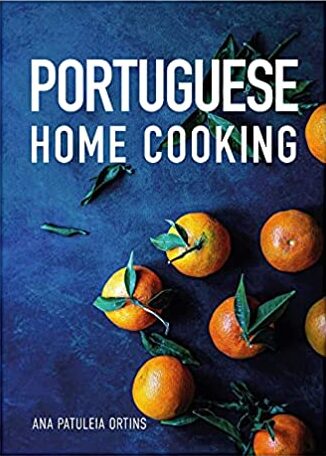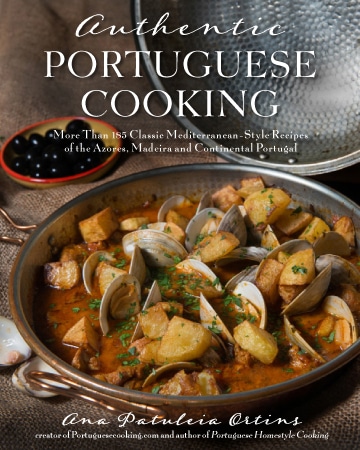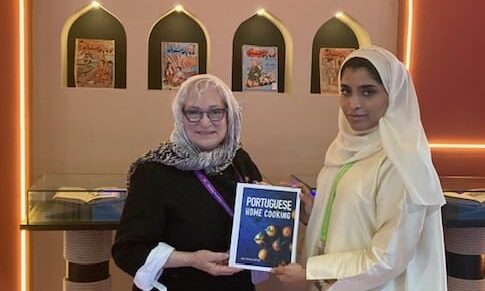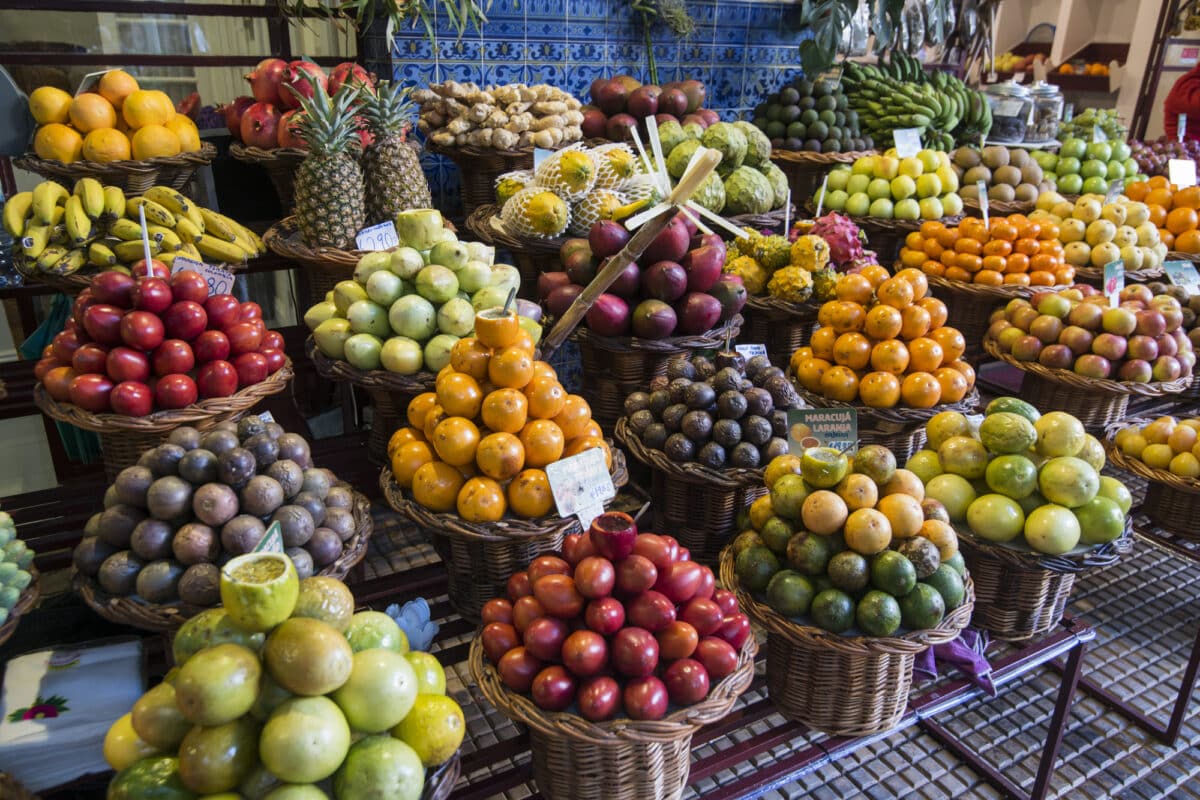Before attending culinary school, I learned cooking from my father, aunt and grandmother and then Portuguese friends.
Denise Landis spoke with Anna Patuleia Ortins, author of two Portuguese cookbooks. In this interview, Ortins discusses her upbringing in a family that emigrated from Portugal in the 1930s and how it shaped her connection to Portuguese food. Ortins focuses on traditional Portuguese recipes and also explores vegetarian options, responding to modern dietary trends. Her recent work included a visit to Dubai to present Portuguese cuisine, where she observed cultural connections between Portuguese and Arab food traditions.
Your father’s family emigrated from Portugal in the 1930s. Were you raised on Portuguese food? Who were your early mentors in cooking?
Yes, my father’s family emigrated to the US in the 1930s. I was raised on Portuguese food. As a young kid, I idolized my father, following him into the garden then to the kitchen. He was my primary mentor.
Did you always plan to be a professional cook? Where did you learn about cooking – and food writing?
Being a professional cook was never on my bucket list. Before attending culinary school, I learned cooking from my father, aunt and grandmother and then Portuguese friends. The food writing came about after my father passed away and I realized the importance of recording what I knew for my children. I started writing a cookbook on a word processor. In culinary school, one of my instructors who did some work for Julia Child looked at what I had written and convinced me to go to a publisher instead of doing a community-style cookbook.



Your two current books, Authentic Portuguese Cooking, and Portuguese Home Cooking, are about traditional, authentic Portuguese recipes. But you are also becoming known in the arena of vegetarian Portuguese cooking. What inspired that interest and how do you think it is relevant to current trends in cooking?
I have vegetarian and vegan friends who have expressed interest in how to modify Portuguese recipes. This interest is relevant because, as we know, food is always evolving. It has been evolving in Portugal for some time. Vegetarian restaurants and cookbooks have been popping up for at least 10 years. Sometimes it works. It can be a temporary trend or “fad,” or it can be a game changer. Portugal is not alone in the evolving food trends. People are cutting meat from their diet for various reasons and they want to be able to enjoy meatless meals without losing favorite flavors.
Q: You were recently honored by the Sharjah Book Authority with an invitation to Dubai to speak about the world of Portuguese cuisine, and give cooking demonstrations. Please share some of your experiences there and the reactions to your recipes. Does Portuguese cooking have any connection, through history or ingredients, to Arab cuisine?
Is it possible to stay true to one’s culinary roots and adapt to modern tastes, ingredients, and even cookware? Can you give examples of where adaptations work well and where they may not?
I don’t think it is difficult to stay true to one’s culinary roots. It might take some recipe analysis, but conversion is doable. Thanks to the global market and the internet, accessibility and sheer variety of new ingredients is inspiring new dishes. For example, spices used in smoked sausages (garlic, paprika, cumin) can be added to a meatless dish – smoked paprika gives the flavor of smoked sausage without adding meat. New cookware and tools can bring new interest in dishes that were traditionally too much work or took too long to cook. Instapots, air fryers, and immersible blenders help busy, working people, but in the process, dishes that need slow simmering to build flavors benefit from a slow cooker. Air fryers might be a healthier alternative to deep frying and the immersible blender is a definite time saver.
Q: You were recently honored by the Sharjah Book Authority with an invitation to Dubai to speak about the world of Portuguese cuisine, and give cooking demonstrations. Please share some of your experiences there and the reactions to your recipes. Does Portuguese cooking have any connection, through history or ingredients, to Arab cuisine?

You were recently honored by the Sharjah Book Authority with an invitation to Dubai to speak about the world of Portuguese cuisine, and give cooking demonstrations. Does Portuguese cooking have any connection, through history or ingredients, to Arab cuisine?
The whole experience was such an honor and feather in my hat! Being able to share the food of my heritage for three days with the people in the UAE was a thrill. I had a team of wonderful people who assisted with prep and serving the people in attendance. There was so much interest in Portuguese food. Some ingredients like salted codfish were difficult to get, so we needed to substitute fresh cod or other firm white fish that was available. Certain ingredients were not allowed because of religious reasons. To say the food was very well received is an understatement, as one woman had three helpings of my soup! There is definitely an Arab connection to Portuguese food, especially in the Alentejo region of Portugal. The art of frying, the bread soups and migas (sautéed crumbled bread), stewed peas, legumes, and almonds come from Arab influence during their occupation of the Iberian peninsula.
What would you like to tell people who are unfamiliar with Portuguese food?
To those who are unfamiliar with Portuguese food, I say give it a try. It is very Mediterranean in style, despite the fact the country borders the Atlantic. There are so many varieties of soups to pick from and flavorful stews, and seafood dishes that are soul comforting. ![]()
